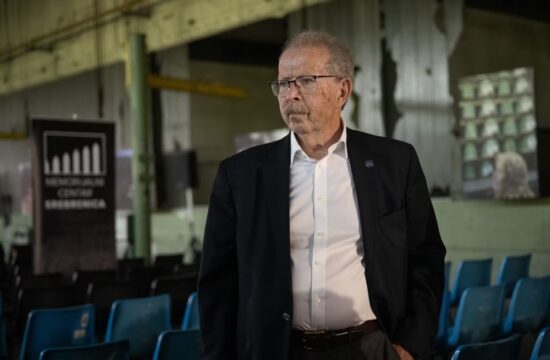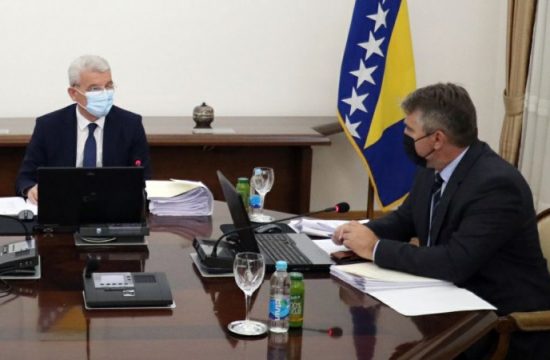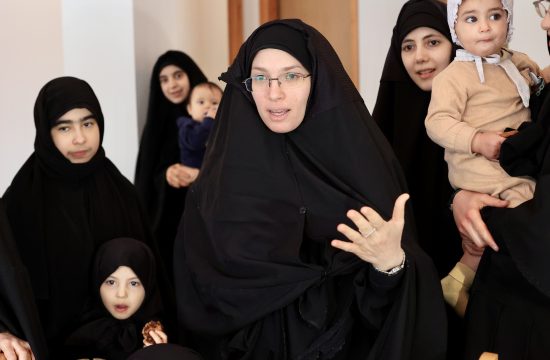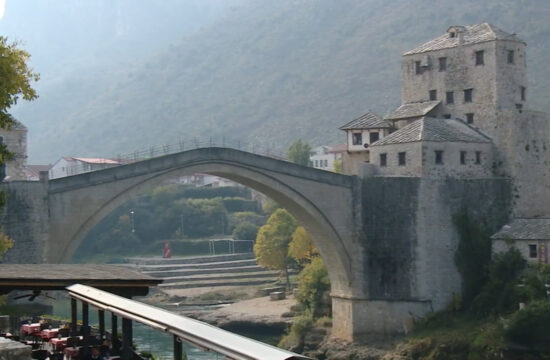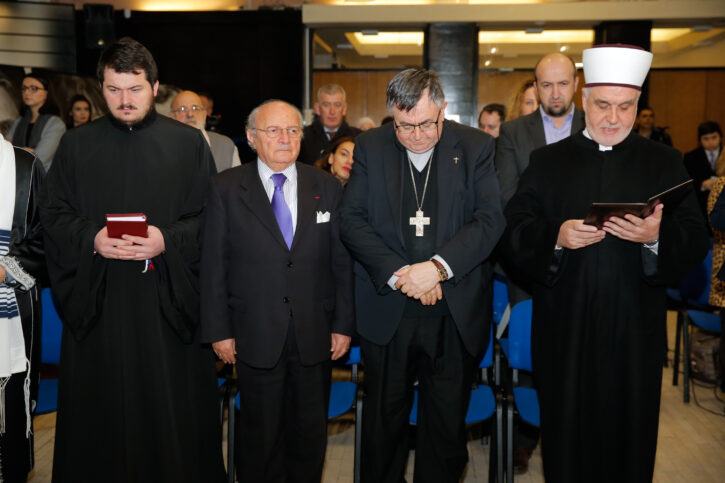
Leaders and representatives of the four largest religious communities in Bosnia and Herzegovina on Tuesday participated in a common prayer for all the victims of the country's 1992-1995 war, expressing a desire for lasting peace.
The prayer, which was held at the headquarters of the Jewish Community in Sarajevo, was led by the Catholic Archbishop of Sarajevo, Cardinal Vinko Puljic, and the head of the Islamic Community in Bosnia and Herzegovina, Husein Kavazovic, together with Serbian Orthodox Church priest Nemanja Dureinovic and the cantor of the Sarajevo Jewish community, Igor Kozemjakin.
“Today's prayer is a message to everyone that we need to respect each other. Bosnia and Herzegovina is a unique small country with a lot of diversity and we (often) do not know how to respect and love the differences. There should be a respect for diversity so every individual will feel safe,” said Cardinal Puljic, while Reis-ul-ulema Kavazovic underscored that he hoped people in Bosnia and Herzegovina would never again experience the bitter lessons of the past.
The prayer was held as part of a cooperation project initiated by the United States Agency for International Development (USAID) and the signing of a new agreement, which was the reason why USAID Deputy Administrator Bonnie Glick had travelled to Sarajevo.
USAID finances and supports the activities of the Inter-Religious Council in Bosnia and Herzegovina, which monitors and responds to incitement of religious hatred and attacks on religious sites in Bosnia and Herzegovina.
“This is a great contribution to our efforts to build lasting peace and eliminate hate speech. I believe this will contribute to a better understanding of all of us in Bosnia and Herzegovina,” said the head of the Jewish Community in Bosnia and Herzegovina, Jakob Finci.
Glick said that today's world was facing a dangerous “weed of intolerance” which should be countered by building trust among people.
She added that the Inter-Religious Council in Bosnia and Herzegovina was an example of how this should be done in societies burdened with a legacy of war and suffering, and especially of how the spread of hatred and intolerance to the youth should be stopped.
All of us in Europe and America have to be involved in spreading positive messages and opposing the rhetoric encouraged by some leaders for their own personal benefit, Glick said.

